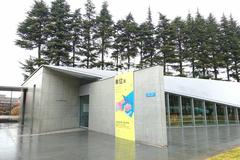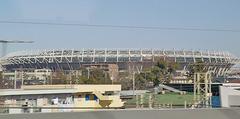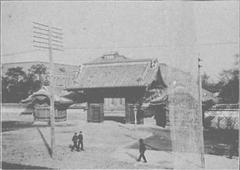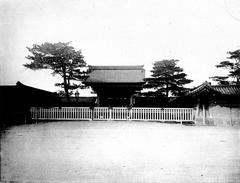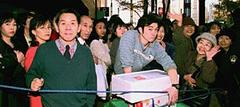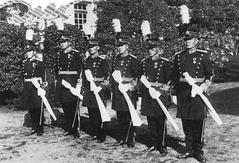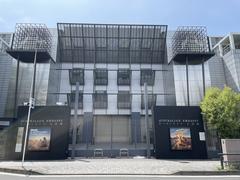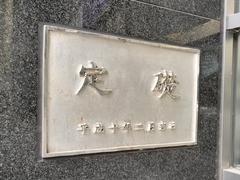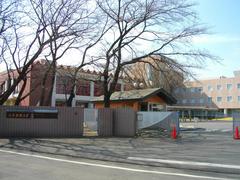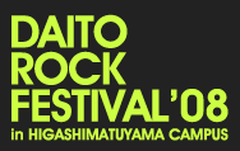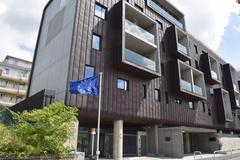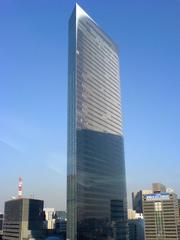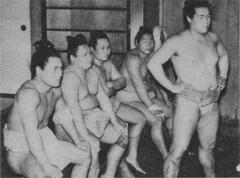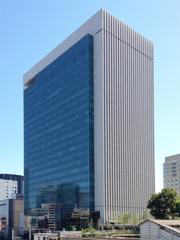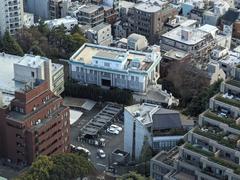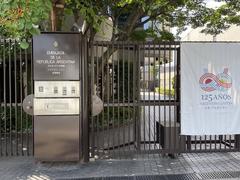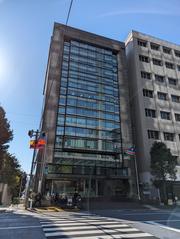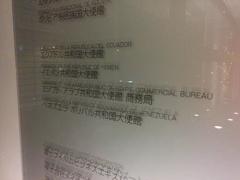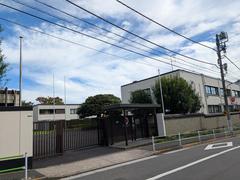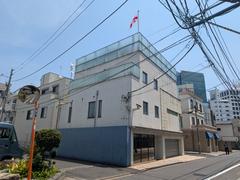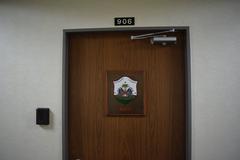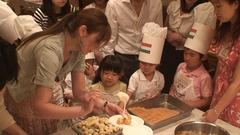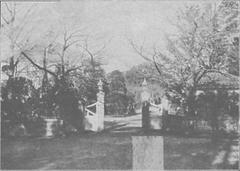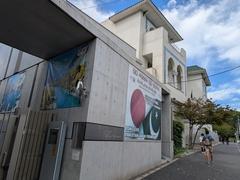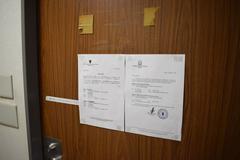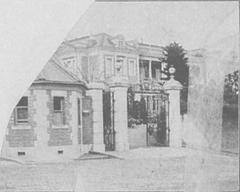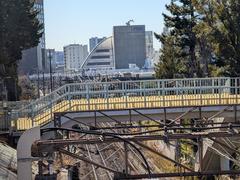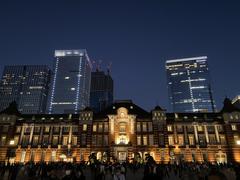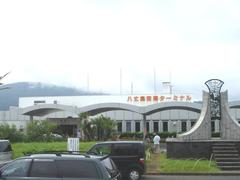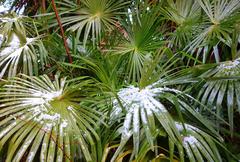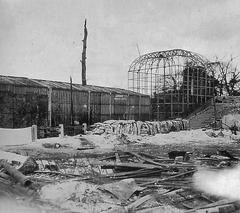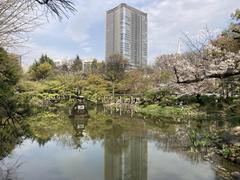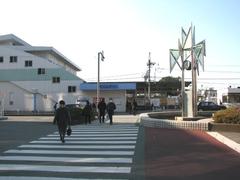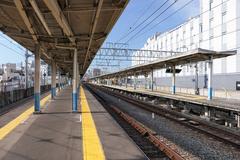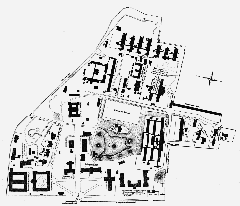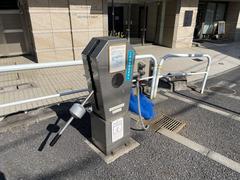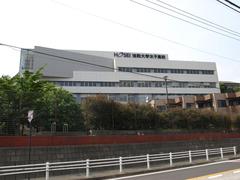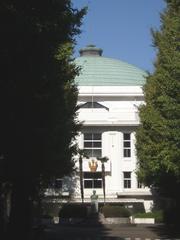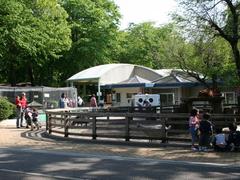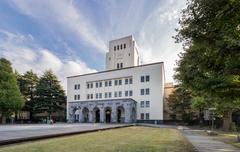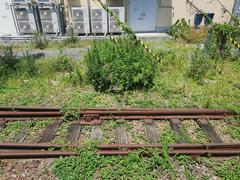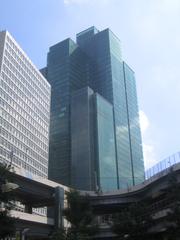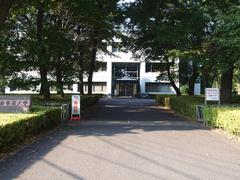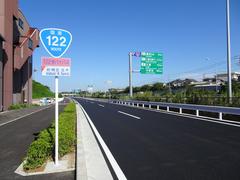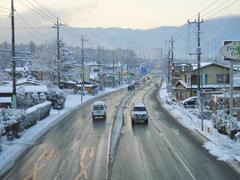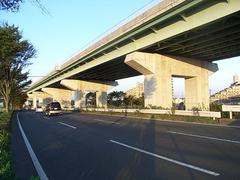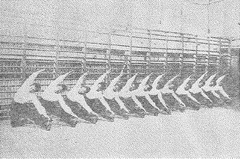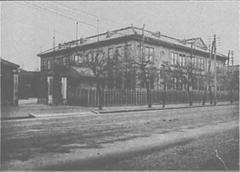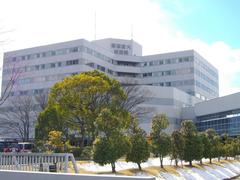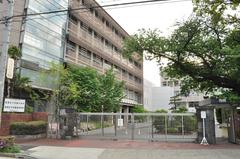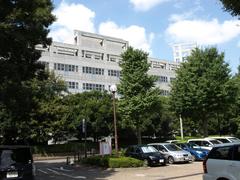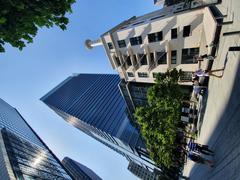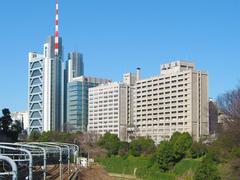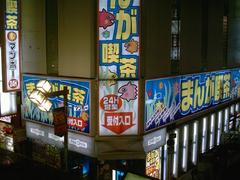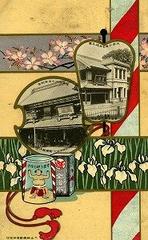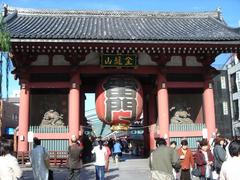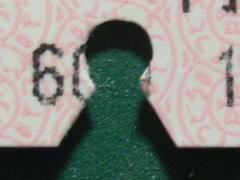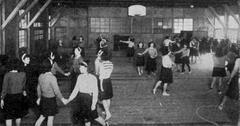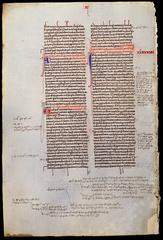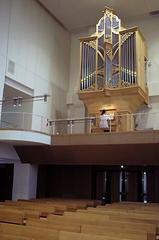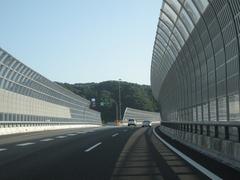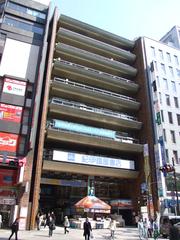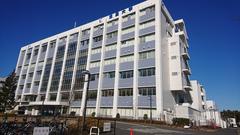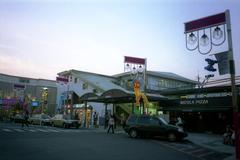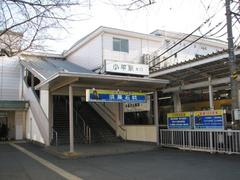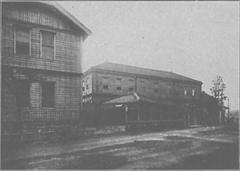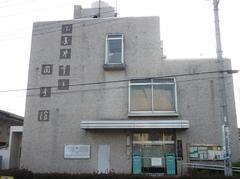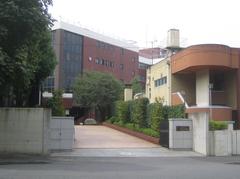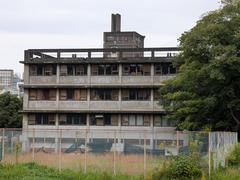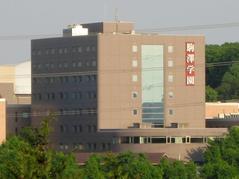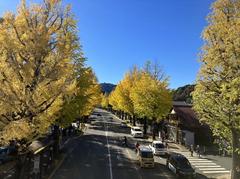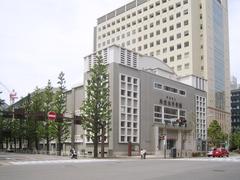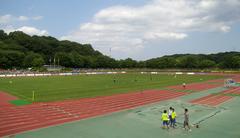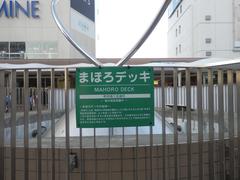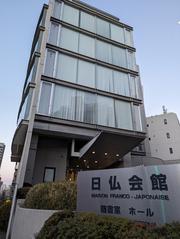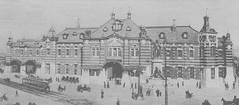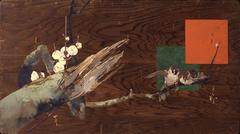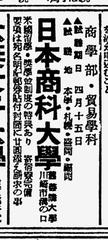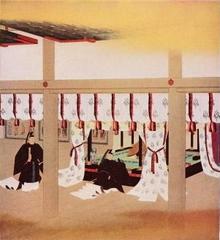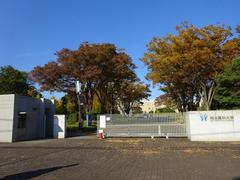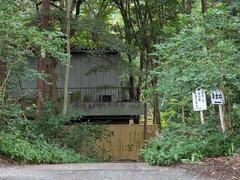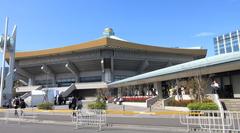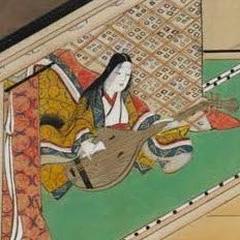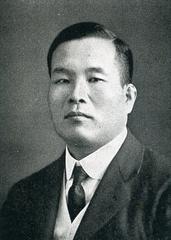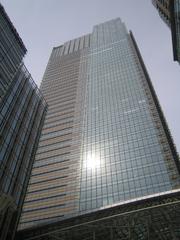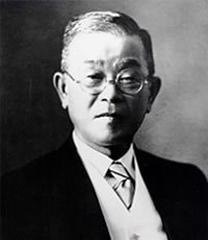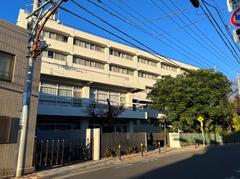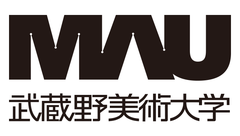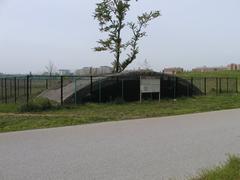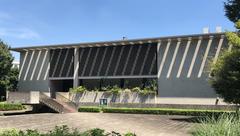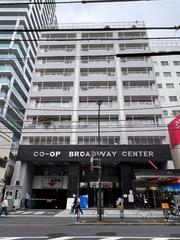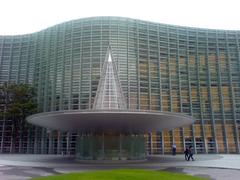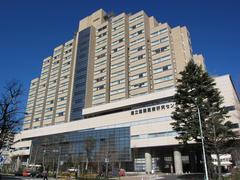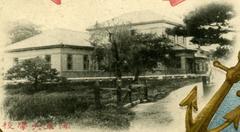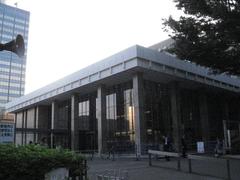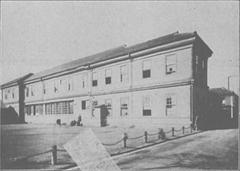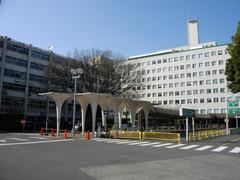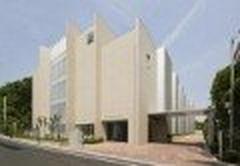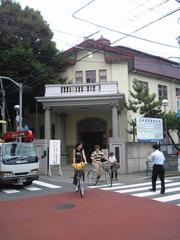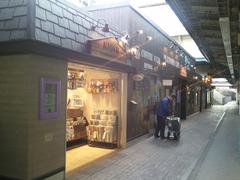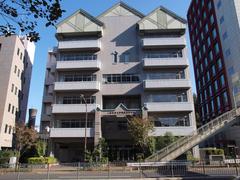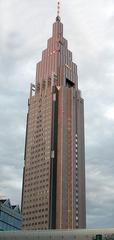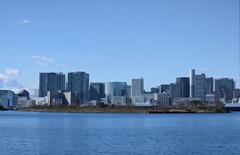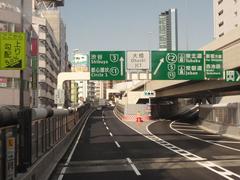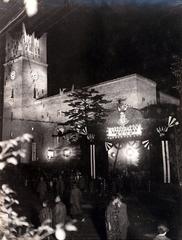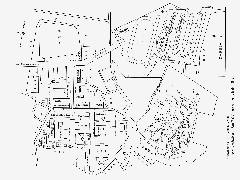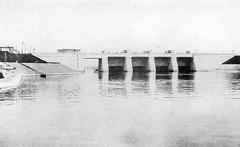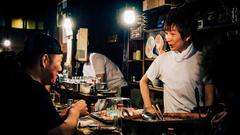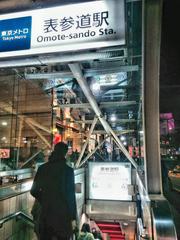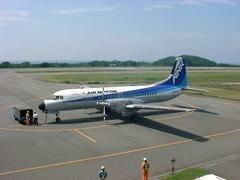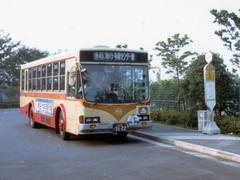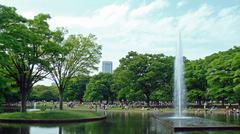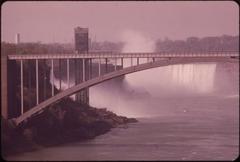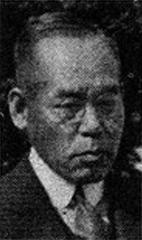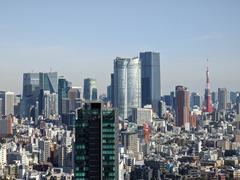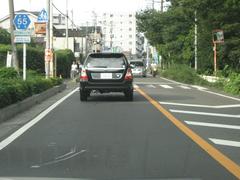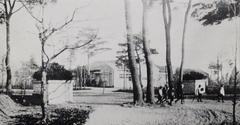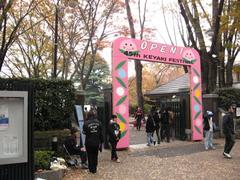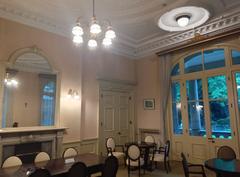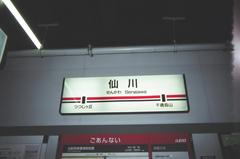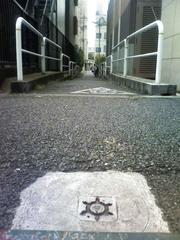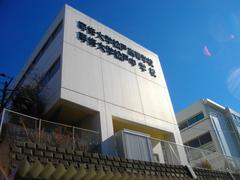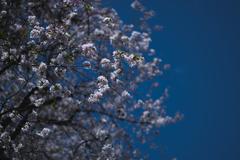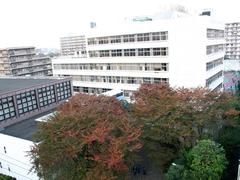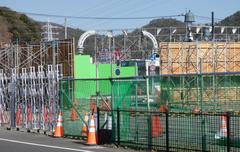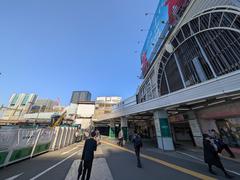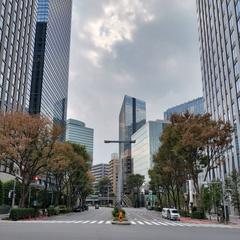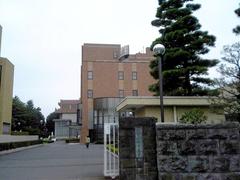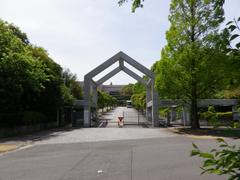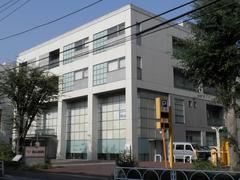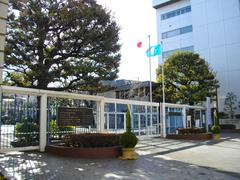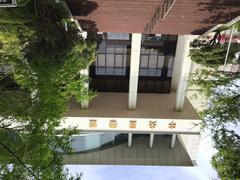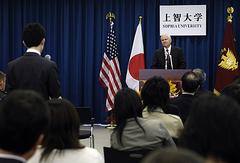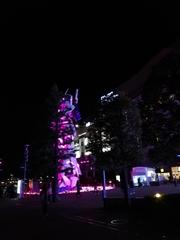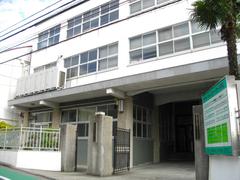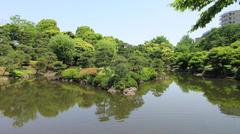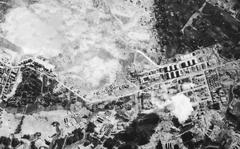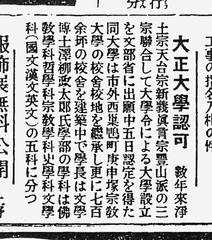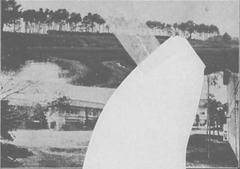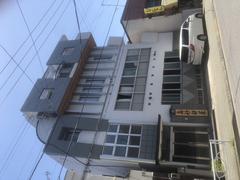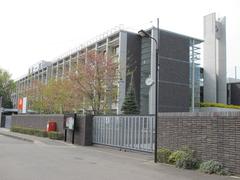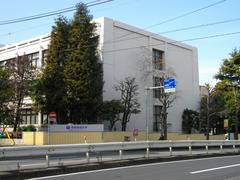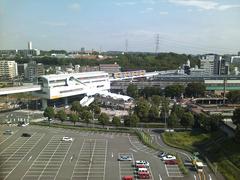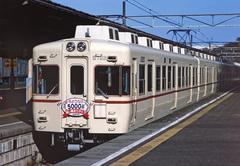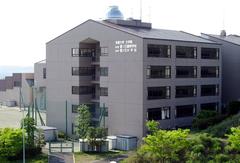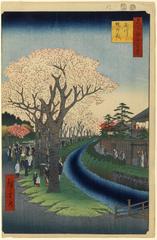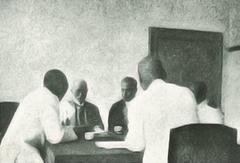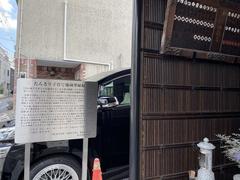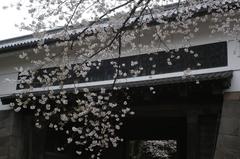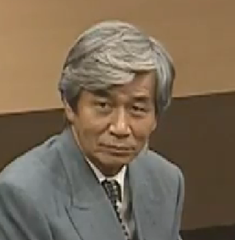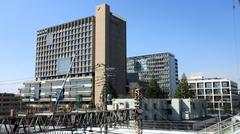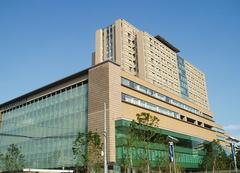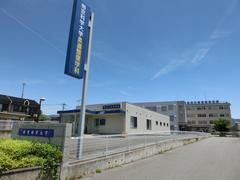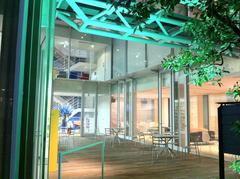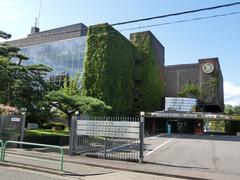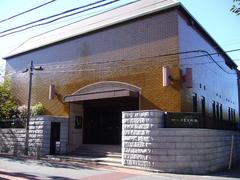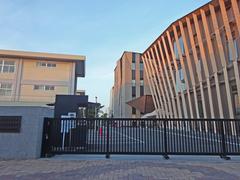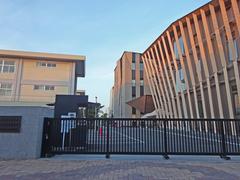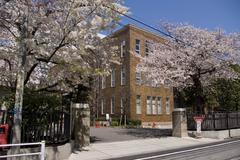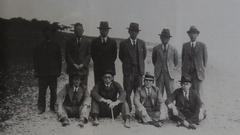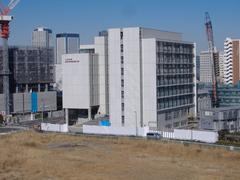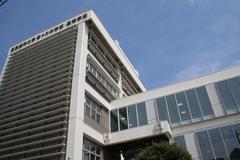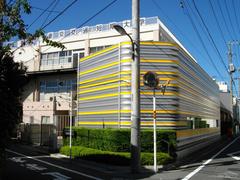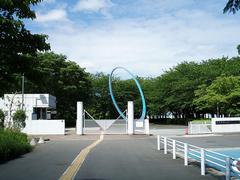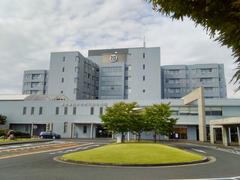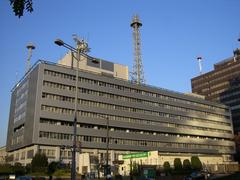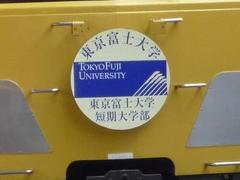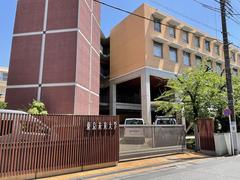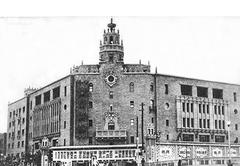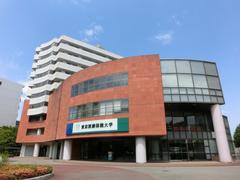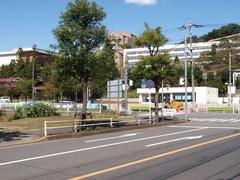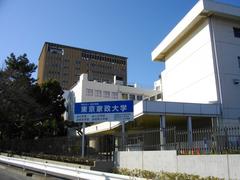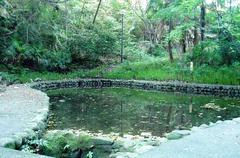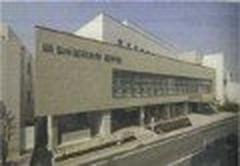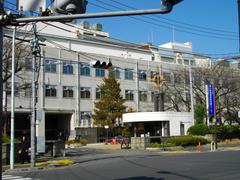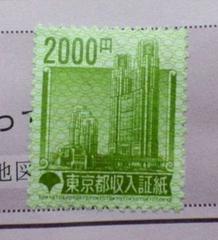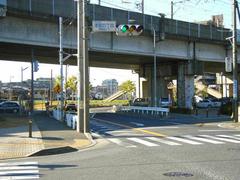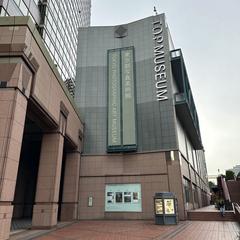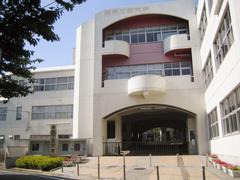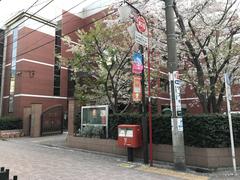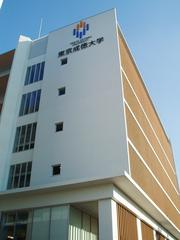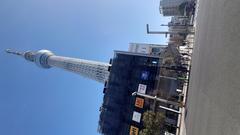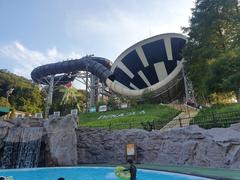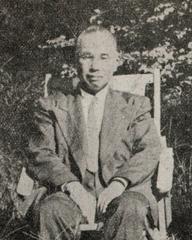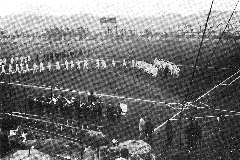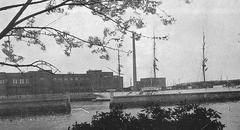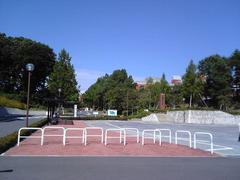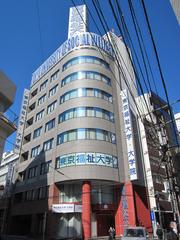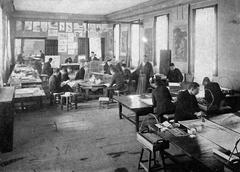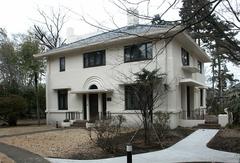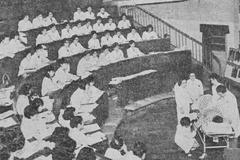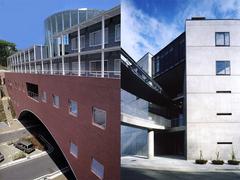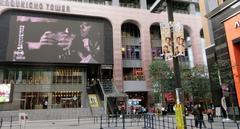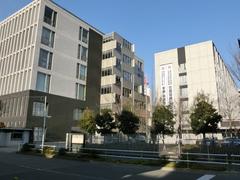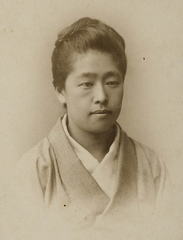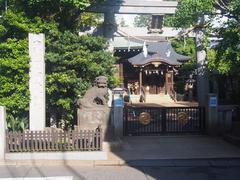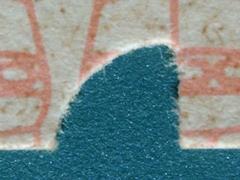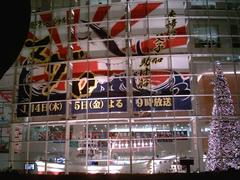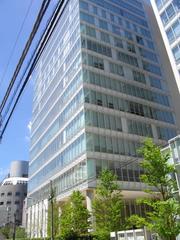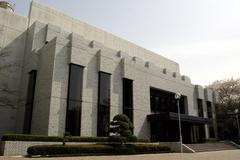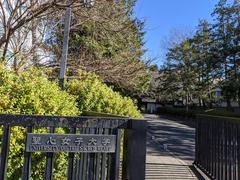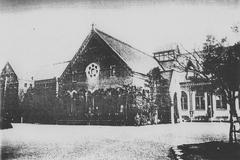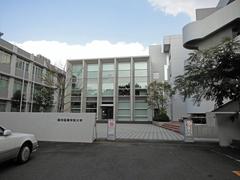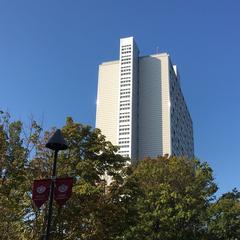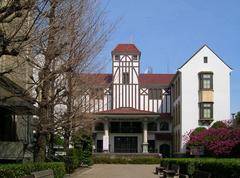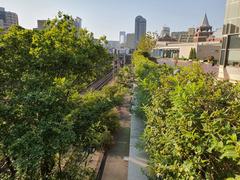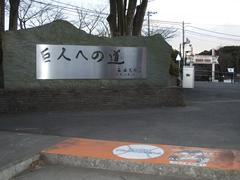Visiting the Consulate-General of the Dominican Republic in Tokyo, Japan: Tickets, Hours, and Tips
Date: 03/07/2025
Introduction
Visiting the Consulate-General of the Dominican Republic in Tokyo offers essential services and a chance to experience the vibrant diplomatic and cultural relationship between the Dominican Republic and Japan. Centrally located in Tokyo, the consulate serves Dominican nationals and visitors by providing passport services, visas, notarizations, and emergency assistance. The consulate is also a vital center for cultural events and exchange, reflecting the longstanding friendship between the two nations.
A notable nearby landmark is the Dominican Republic–Japan Friendship Monument in Minato-ku. This monument blends Dominican and Japanese artistic elements, symbolizing mutual respect and cooperation in trade, culture, and education. It stands as a testament to the enduring diplomatic ties and serves as a meaningful destination for visitors interested in the shared history of both countries.
This comprehensive guide includes information on the consulate’s location, visiting hours, appointment procedures, access, security, and nearby amenities. It also highlights the cultural significance of the Friendship Monument, travel tips, and guidance for an enriching experience. Before visiting, check the most current information at the Embassy of the Dominican Republic in Japan and the Dominican Republic Ministry of Foreign Affairs.
Table of Contents
- Introduction
- Location of the Consulate-General of the Dominican Republic in Tokyo
- Accessibility
- Visiting Hours and Appointment Information
- Security Procedures
- Language Services
- Emergency Services
- Consular Fees
- Nearby Amenities
- Cultural Significance and Special Services
- Photographic Spots
- Frequently Asked Questions (FAQ)
- Discover the Dominican Republic–Japan Friendship Monument in Tokyo
- Plan Your Visit
- Conclusion
Location of the Consulate-General of the Dominican Republic in Tokyo
The Consulate-General is strategically situated in one of Tokyo’s central business districts, close to major embassies, government offices, and international organizations. This location ensures seamless access via Tokyo’s extensive public transportation network, including Tokyo Metro and JR lines. The consulate is typically housed in a modern office building with security and reception services. The surrounding area includes numerous cafes, convenience stores, and ATMs, making it convenient for visitors.
For the latest and most accurate address, please consult the official website of the Dominican Republic’s Ministry of Foreign Affairs or the Embassy of the Dominican Republic in Japan.
Accessibility
Public Transportation
Tokyo’s advanced public transit system makes reaching the consulate straightforward. Prepaid IC cards like Suica or Pasmo can be used for trains, subways, and buses.
- Nearest Stations: The consulate is accessible from stations such as Roppongi, Akasaka, or Shibuya, which serve the Hibiya, Ginza, and Chiyoda lines. These lines connect to major city hubs like Tokyo and Shinjuku stations.
- Walking Directions: English signage and well-maintained sidewalks guide visitors from stations to the consulate. Building staff are available to assist international visitors.
Taxi and Ride-Sharing
Taxis and ride-sharing services such as Uber and JapanTaxi are widely available in Tokyo, providing convenient door-to-door transport—particularly useful for those with luggage or mobility needs.
Accessibility for Persons with Disabilities
Tokyo’s public infrastructure and the consulate building adhere to high accessibility standards, featuring ramps, elevators, tactile paving, and accessible restrooms. Visitors with special needs are encouraged to contact the consulate in advance for assistance.
Parking
Due to limited parking and central location, public transit is recommended. Some buildings offer paid parking (usually by the hour), but availability is limited. Confirm parking when scheduling your appointment.
Visiting Hours and Appointment Information
Office Hours
The consulate generally operates from 9:00 AM to 5:00 PM, Monday through Friday. Hours may vary on Dominican and Japanese public holidays or for staff training. Always verify current hours via the official website or by phone before visiting.
- Public Holidays: The consulate observes both Dominican and Japanese public holidays, during which services may be suspended.
Appointment System
Most services, including visa applications, passport renewals, and notarizations, require an appointment. Appointments can be booked online or by phone. Walk-in services are limited to emergencies.
- Booking Tips: Provide accurate information and specify your service needs when booking.
- Required Documents: Prepare all necessary documents in advance; checklists are available on the consulate’s website.
- Processing Times: Standard processing may take several business days. Expedited service may be available for urgent cases.
Security Procedures
Security protocols include screening procedures such as bag checks and metal detector scans. Photography is prohibited inside the consulate, and large bags, electronics, or sharp objects may be restricted.
- Identification: Bring a government-issued photo ID (e.g., passport or residence card) and your appointment confirmation.
- Accompanying Persons: Only those with appointments are generally admitted. If you need to bring a translator or family member, notify the consulate in advance.
Language Services
Staff are fluent in Spanish and Japanese, with English support available. Visitors requiring assistance in other languages should bring a translator or request language support when booking.
Emergency Services
The consulate provides emergency assistance for Dominican nationals in Japan, including passport replacement, legal support, and help during arrests, hospitalization, or disasters. Emergency contact details are listed on the consulate’s website and are monitored outside office hours.
Consular Fees
Fees are payable in Japanese yen, typically in cash, with some services accepting credit cards. A full fee schedule is published online and displayed at the consulate. Receipts are provided for all transactions.
Nearby Amenities
The consulate’s central location offers:
- Dining: Nearby cafes, restaurants, and convenience stores with Japanese and international cuisine.
- Banking: ATMs and currency exchange services within walking distance.
- Tourist Attractions: Sites such as the Imperial Palace, Tokyo Tower, and Roppongi Hills are nearby.
Cultural Significance and Special Services
The consulate regularly supports cultural exchange and the Dominican community in Japan. It hosts events and informational sessions; check the consulate’s website or social media for upcoming activities.
Photographic Spots
While photography is not permitted inside the consulate, the surrounding area features excellent photo opportunities of Tokyo’s cityscape, landmark buildings, and diplomatic architecture.
Frequently Asked Questions (FAQ)
Q: Can I visit the consulate without an appointment?
A: Walk-ins are only accepted for emergencies. Please book in advance online or by phone.
Q: What documents do I need for passport renewal?
A: Bring valid identification, completed application forms, recent photographs, and your current passport. Refer to the consulate’s website for detailed requirements.
Q: Is the consulate building accessible for wheelchair users?
A: Yes, the building complies with accessibility standards. Contact the consulate for specific accommodations.
Q: How do I find the consulate using public transportation?
A: Use Tokyo Metro or JR lines to reach nearby stations such as Roppongi or Akasaka, then follow signage or ask staff for directions.
Discover the Dominican Republic–Japan Friendship Monument in Tokyo
History and Significance
The Dominican Republic–Japan Friendship Monument stands in Minato-ku as a symbol of diplomatic and cultural ties. Unveiled to honor bilateral relations, it reflects cooperation in trade, culture, and education. The design blends Dominican and Japanese artistic motifs, representing harmony and mutual respect.
Visiting Information
- Location: Minato-ku, Tokyo (near Kowa 38 Building)
- Hours: Open daily, 9:00 AM–6:00 PM
- Admission: Free
- Accessibility: Wheelchair accessible; close to public transport.
Visitor Tips
- Visit on weekdays for a quieter experience.
- Photography is encouraged—capture intricate details of the monument.
- Enjoy nearby cafes and parks after your visit.
- Consider combining your trip with other Minato-ku historical sites.
Guided Tours and Educational Programs
Guided tours are offered on weekends and public holidays, offering insights into the monument’s history and symbolism. Educational programs and cultural events occur occasionally; check local listings or official tourism sites for schedules.
Nearby Attractions
- Tokyo Tower: Panoramic city views.
- Zojoji Temple: Historic Buddhist temple.
- Roppongi Hills: Shopping, dining, and art galleries.
Frequently Asked Questions (FAQ)
Q: Is there an entrance fee for the monument?
A: No, it is free to visit.
Q: Are guided tours available?
A: Yes, on weekends and public holidays. Book in advance.
Q: Is the monument accessible for those with disabilities?
A: Yes, the site is wheelchair accessible.
Q: What is the best time to visit?
A: Weekday mornings are the quietest.
Visual Experience
The monument features detailed engravings and landscaping that blend Dominican and Japanese styles. Bilingual signage provides historical background and context.
Plan Your Visit
For the latest information on events, tours, and travel tips, visit the official Tokyo tourism website or the Dominican Republic embassy’s cultural affairs page. Download the Audiala app for personalized planning and updates.
Share your experience at the Dominican Republic–Japan Friendship Monument on social media and explore more of Tokyo’s historical sites with our recommended guides.
Sensō-ji Temple: Tokyo’s Iconic Historical Site
Sensō-ji Temple, in Asakusa, is Tokyo’s oldest and most significant Buddhist temple. Founded in 628 AD, it is famous for the Kaminarimon Gate and the lively Nakamise shopping street.
History and Cultural Significance
Built to honor Kannon, the Goddess of Mercy, Sensō-ji has been rebuilt several times and stands as a vital spiritual and cultural center. It is a hub for major festivals like Sanja Matsuri.
Visiting Hours and Tickets
- Temple Grounds: Open 24 hours.
- Main Hall and Pagoda: 6:00 AM–5:00 PM.
- Admission: Free (special exhibitions may require tickets).
How to Get There
- Address: 2 Chome-3-1 Asakusa, Taito City, Tokyo 111-0032, Japan
- Access: Tokyo Metro Ginza Line (Asakusa Station), Toei Asakusa Line, or Tobu Skytree Line.
Nearby Attractions
- Nakamise Shopping Street: Traditional snacks and souvenirs.
- Asakusa Culture and Tourist Information Center: Maps and multilingual support.
- Sumida Park: Cherry blossom viewing.
Special Events and Festivals
- Sanja Matsuri (May): Large Shinto festival with parades.
- Hozuki-ichi (July): Lantern festival with decorative ground cherries.
Photography Tips
- Visit early for uncrowded views of Kaminarimon Gate.
- Evening illuminations highlight temple structures.
- Cherry blossom and autumn foliage provide stunning backdrops.
Accessibility and Visitor Information
- Wheelchair accessible.
- Multilingual signage and information desks.
Related Links
Frequently Asked Questions (FAQ)
Q: Is there an entrance fee for Sensō-ji?
A: No, entry is free. Some events may charge admission.
Q: When is Sensō-ji least crowded?
A: Early mornings, especially just after 6:00 AM.
Q: Can I take photos?
A: Yes, but avoid flash and respect worship areas.
Q: Are guided tours available?
A: Yes, through agencies or the tourist center.
Q: Is Sensō-ji accessible for visitors with disabilities?
A: Yes, the temple provides accessible facilities.
Alcázar de Colón: Colonial Heritage in Santo Domingo
The Alcázar de Colón, in Santo Domingo’s Colonial Zone, is an iconic 16th-century palace built for Diego Columbus, son of Christopher Columbus. This Renaissance-style fortress offers a window into the colonial past of the Dominican Republic.
History and Cultural Significance
Built between 1510 and 1514, the Alcázar was the seat of Spanish colonial administration in the New World. Its architecture blends Gothic and Renaissance styles, and today it is a museum showcasing period furniture, art, and artifacts.
Visiting Hours and Tickets
- Hours: Tuesday–Sunday, 9:00 AM–5:00 PM (closed Mondays and public holidays).
- Admission: Adults
150 Dominican Pesos ($3 USD), discounts for students/seniors with ID, free for children under 12. - Guided Tours: Available in English and Spanish. Advance booking recommended.
Tickets can be purchased onsite or online via the official museum website.
Accessibility and Facilities
Wheelchair accessible, with ramps and elevators. Facilities include restrooms, a gift shop, and a cafeteria.
Travel Tips
- Wear comfortable shoes for cobblestone paths.
- Photography is permitted, but avoid flash and tripods inside.
- Explore nearby Colonial Zone landmarks.
- Consider hiring a guide for a richer experience.
Nearby Attractions
- Catedral Primada de América: Oldest cathedral in the Americas.
- Parque Colón: Lively square with cafes.
- Museo de las Casas Reales: Colonial-era museum.
Special Events and Exhibitions
The Alcázar hosts art exhibitions, historical reenactments, and music performances. Check the official website for schedules.
Frequently Asked Questions (FAQ)
Q: Is the Alcázar de Colón suitable for children?
A: Yes, especially with kid-friendly guided tours.
Q: Are there restrictions on what I can bring?
A: Large bags may be inspected; no food or drink inside.
Q: Can tickets be booked online?
A: Yes, especially recommended during peak season.
Q: Is there parking nearby?
A: Limited street parking; public transit or taxis are recommended.
Visual and Media Suggestions
Capture the Alcázar’s façade, river views, and interior courtyards. Drone use is restricted.
Further Information
Summary: Visiting the Consulate-General in Tokyo
A visit to the Consulate-General of the Dominican Republic in Tokyo is efficient and rewarding with advance planning. Secure an appointment, prepare required documents, and use Tokyo’s public transport for easy access. The consulate’s central location and nearby amenities ensure convenience.
The Dominican Republic–Japan Friendship Monument offers cultural enrichment and insight into the countries’ diplomatic bond. Open daily with free admission, it is complemented by nearby attractions such as Tokyo Tower and Roppongi Hills.
These sites together embody the spirit of international friendship, providing practical services and cultural experiences. For updates and assistance, follow the Dominican Republic Embassy in Japan and use tools like the Audiala app for travel support.
References and External Links
- Consulate-General of the Dominican Republic Tokyo: Location, Visiting Hours, Appointments, and Visitor Information, 2025, (Embassy of the Dominican Republic in Japan)
- Monument Guide: Exploring the Historic Dominican Republic–Japan Friendship Monument in Tokyo, 2025, Tokyo Tourism Official Site
- Dominican Republic Ministry of Foreign Affairs, 2025, (mirex.gob.do)
- Tokyo Tourism Official Site
- Sensō-ji Official Website
- Official Alcázar de Colón website
- Santo Domingo’s Colonial Zone
